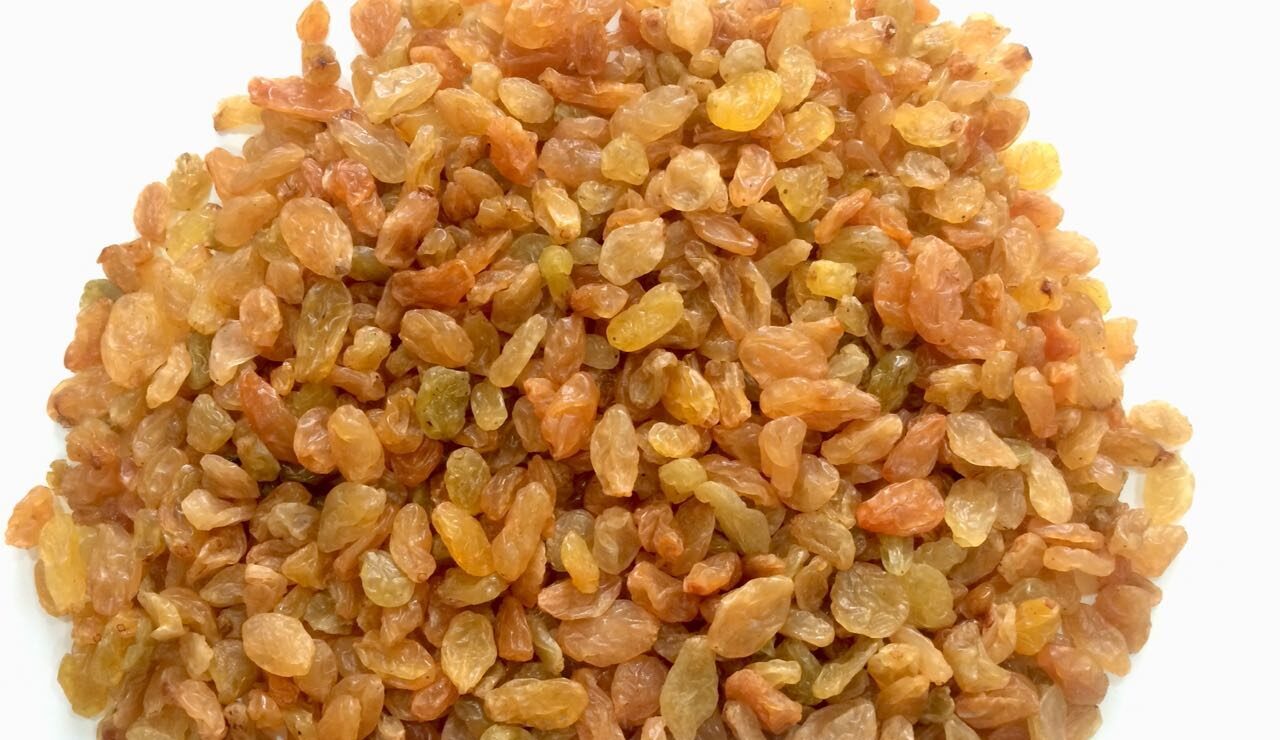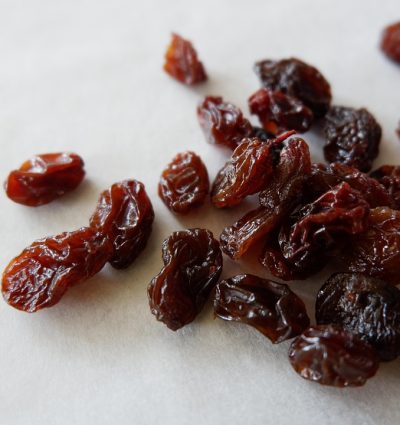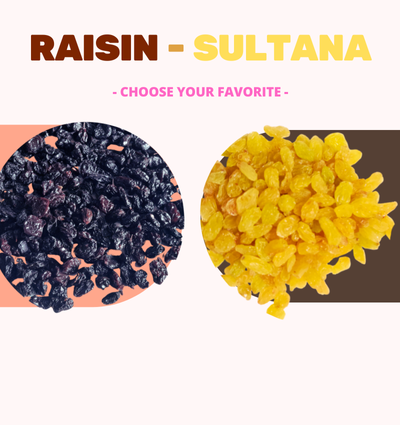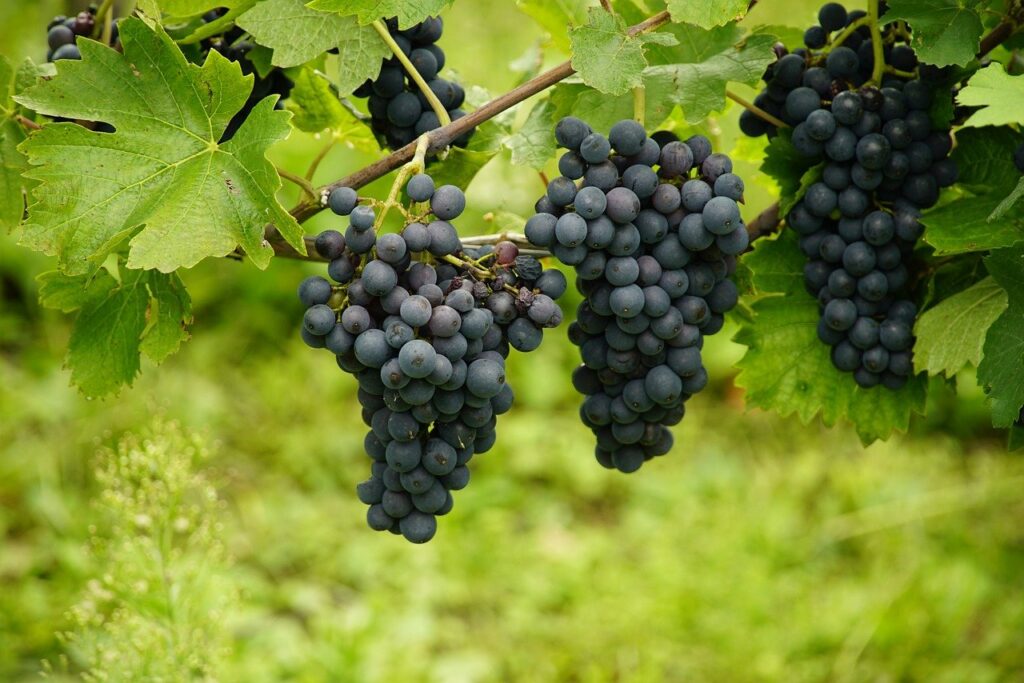Introduction
Sultanas and raisins are popular dried fruits in all over the world, Both are popular while they may seem similar, there are clear differences between them. Differece can guide you, the perfect ingredient to elevate your dish.In this article, we will see what sets sultanas apart from raisins, compare their nutritional values, discuss their best uses in cooking and various food industries.
What is Sultana?
Sultanas, also known as golden raisins, made from seedless fresh grapes. They are typically treated with a solution containing sulfur dioxide to preserve its light yellow color during the drying process. Sultanas are then dried, either by sun drying or via a machine process. This treatment results in a fruit that is plump, juicy, and a sweet flavor.
In many countries, particularly in the Spian, Germany, UK, Poland, France,Greece, Italy, Serbia, Netherland and othr EU nations, sultanas are a staple in bakery and cooking segmants. Witn sweetness and texture make them a favorite for adding to cakes, bread, and salads. Sultanas are also a common ingredient in Middle East and Asian cuisine, to enhance the flavor of savory dishes. The preservation process ensures that sultanas retain a significant amount of their original nutrients, making them a healthy addition to various dishes.

What Are Raisins?
Raisins are sun-dried or machine-dehydrated grapes, typically made from seedless varieties. Unlike sultanas, they don’t get a sulfur dioxide treatment, which gives them a darker, more natural color. This drying process concentrates their sweetness and transforms them into shriveled little gems packed with flavor.
Raisins are widely used around the world in both sweet and savory dishes. A common snack and are often included in cereals, bars, confectionery and desserts. In baking, raisins add moisture and natural sweetness to cookies, bread, and muffins. In savory dishes, they can be found in salads, meat dishes, and rice-based recipes. Raisins are also known for their long shelf life, making them a convenient pantry staple. Their nutrient density, especially in terms of fiber and antioxidants, makes them a healthy snack option.
Nutritional Comparison
Sultanas' Nutritional Profile
Sultanas are packed with essential nutrients. A typical serving (about 1/4 cup) contains:
Calories: 310
Carbohydrates: 75g
Sugars: 29g
Fiber: 6.5g
Protein: 1.8g
Fat: 0.3g
Calcium – 87 mg
Iron – 1.79 mg
Magnesium – 36 mg
Potassium – 744 mg
Vitamin C – 2.3 mg
Sultanas are also rich in antioxidants, particularly polyphenols, which help lower stress.

Raisins' Nutritional Profile
Raisins offer a similar nutrient density. A typical serving contains:
Calories: 308
Carbohydrates: 72g
Sugars: 28g
Fiber: 6.8g
Protein: 1.8g
Fat: 0.3g
Calcium – 87 mg
Iron – 1.79 mg
Magnesium – 36 mg
Potassium – 744 mg
Vitamin C – 2.3 mg
Raisins are also high in antioxidants and provide a significant source of potassium, which is crucial for heart health and regulating blood pressure.

Health Benefits
Both sultanas and raisins offer numerous health benefits. They are packed with essential nutrients and can contribute to a balanced diet. One of the primary benefits of both dried fruits is their high fiber content, which aids in digestion and can help maintain a healthy weight by promoting a feeling of fullness.
Sultanas, with their sulfur dioxide content, have the added benefit of retaining more vitamin C. This can boost your immune system and enhance skin health. The antioxidants in sultanas also help combat oxidative stress, potentially reducing the risk of chronic diseases.
Raisins, known for their high antioxidant content, are excellent for heart health. The polyphenols in raisins can lower blood pressure and reduce cholesterol levels. Additionally, the natural sugars in raisins provide a quick energy boost, making them an ideal snack for active individuals. Raisins also contain boron, a mineral that supports bone health and cognitive function.
Uses in Different Food
Sultanas and raisins can be used in a variety of culinary applications, each bringing a unique flavor and texture to dishes.
Sultanas are often favored in baking due to their plump, juicy nature and sweet taste. They are ideal for fruit cakes, scones, and bread. In savory dishes, sultanas can add a touch of sweetness to rice dishes, couscous, and stews. Their light color and mild flavor also make them a good match for salads and vegetable dishes.
Raisins, with their intense sweetness and chewy texture, are perfect for adding to oatmeal, granola, and yogurt. They enhance the flavor of baked goods like cookies, muffins, and bread. In savory cooking, raisins can be found in Middle Eastern and North African dishes, adding depth to meat and vegetable stews. They are also a great addition to salads, providing a sweet contrast to tangy dressings and bitter greens.
Which One Should You Choose?
Choosing between sultanas and raisins depends on your specific needs and requirement.
Prefer a sweeter, juicier fruit with a lighter color, sultanas is best option. Particularly good for baking and adding a subtle sweetness to dishes.
If you’re looking for, concentrated sweetness with additional health benefits, raisins are a great choice. Their higher fiber and antioxidant content make them a healthy snack and a versatile ingredient in both sweet and savory recipes. Naturally, Raisin have good antioxidant and fibers.
Consider your dietary needs and the specific dish you are preparing when making your choice. Both sultanas and raisins have unique qualities that can enhance your culinary creations and contribute to a balanced diet. Satdal International will help you to choose right products as per your requirement.
Conclusion
We get some unique features and difference between Raisins and sultanas. Both are good, with key differences! Knowing taste, appearance and nutri value. Sultanas: juicy, golden stars for baking & savory surprises. Raisins: intense chews in a rainbow of colors. You can enjoy with both type of raisin.
Both type of dried grapes availbale from India. As India is one of the leading producers country and serving the best quality.

